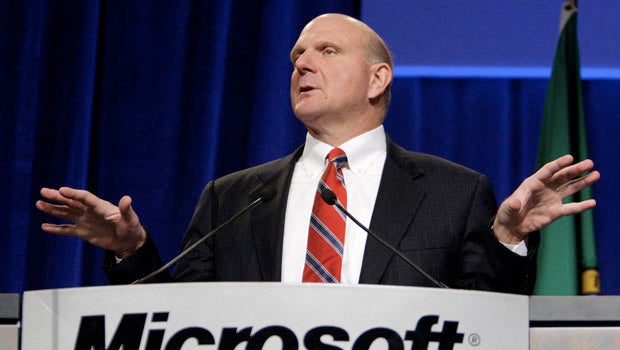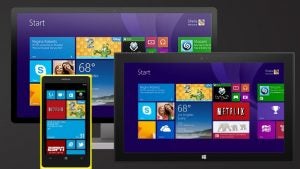Ballmer is right, Universal Apps won’t solve Microsoft’s app problem

OPINION: Microsoft’s ex-CEO has slammed its plans to use Universal Apps to bolster its mobile hopes and Andy Vandervell agrees
Everyone is a genius in hindsight. Steve Ballmer, Microsoft’s ex-CEO, won’t go down in history as the most successful or visionary executive, but boy can he cut through the “bullshit” as he recently put it.
It was Microsoft’s revenue reporting that prompted that comment, but Ballmer also slammed Microsoft’s Universal App strategy. He’s convinced that they won’t solve Microsoft’s ailing mobile efforts and its chronic lack of apps, and I totally agree.
In a nutshell, Microsoft hopes that Universal Apps – apps that can run on mobile, desktop and its Xbox One games console – will incentivize developers to work on Windows 10. Make it easy and they will come is the mantra.
It’s a nice idea, but what developers really want is an audience. There are hundreds and thousands of iOS and Android apps because there are million of customers to serve.
Related: Windows 10 Mobile review
Now consider Windows 10 Mobile. After months of silence and no new Windows phones, Microsoft’s released two dull, deeply underwhelming phones and a slightly buggy operating system.
Microsoft’s also shelved its much publicised program to make it easier for developers to port Android apps – a similar program for iOS apps is still running, but we’ve heard little about it since Microsoft announced it.
So, here I am, a small, independent developer looking to create an app to make me money. To pay my bills. I could develop a Universal App on Windows 10 for a mobile platform with no serious hardware, no audience and no real prospect of making any money, or I could focus my efforts on the two huge, successful app stores out there.
And when my brilliant app hits the big time on Android and iOS, I could respond to 2.6%* of people asking for a Windows 10 Mobile app, or I could keep the 96.7%* of Android and iOS customers I have happy by adding the features they want and attracting new customers.
That’s not a difficult decision to make.

Get serious or go home
This is obviously a tough problem for Microsoft to solve – how do you create a successful mobile ecosystem without any apps? But it certainly can’t do that without a concerted effort to make great phones that people want to own. Neither the Lumia 950 nor the 950 XL are that.
Perhaps the oft rumoured Surface Phone will be that phone, but Microsoft has squandered all the momentum it generated with some decent entry-level and mid-range phones. Android owns that space now and a high-end phone for business users won’t turn the tide in its favour.
Microsoft is fighting a war it lost a long time ago and Universal Apps are a sticking plaster on a severed limb.
(apester:5660456f41f2d0122b05615c)
*Based on smartphone OS market share figures from IDC, August 2015.

